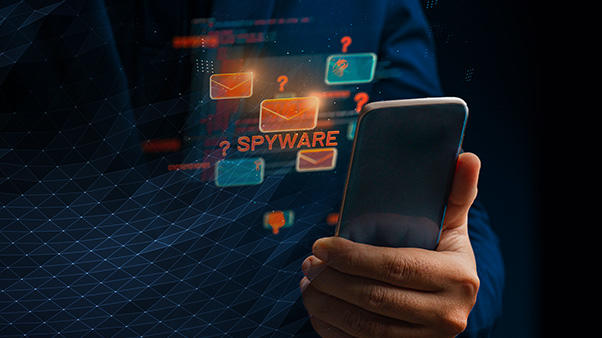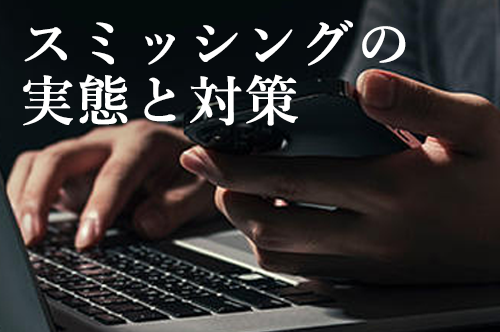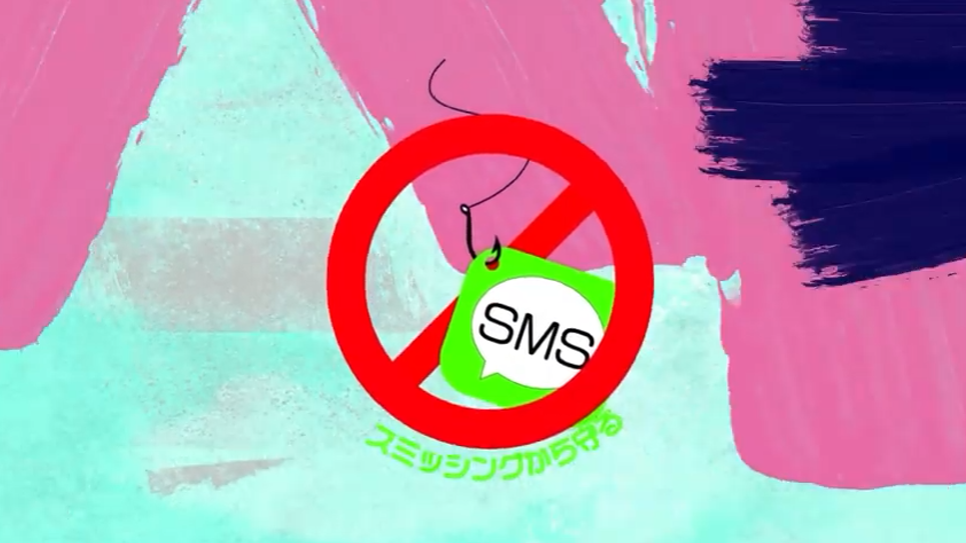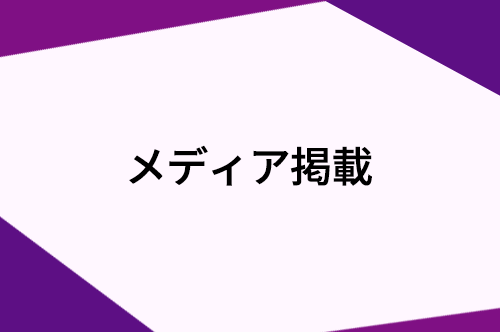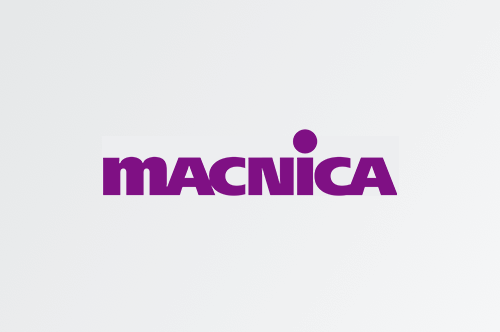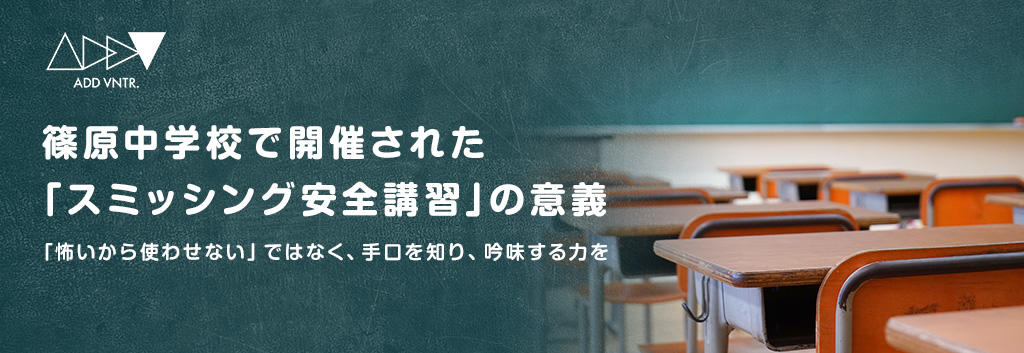
In recent years, damage caused by phishing or "smishing" using SMS has been rapidly increasing. This is a technique that is not well known among young people who are just starting to use smartphones and their parents, although it may be true for people who are originally interested in security. As part of its contribution to the local community, Macnica held a ``Smishing Safety Course'' at Shinohara Junior High School, using actual examples to explain to students what kind of dangers there are and how to deal with them.
Do you know? "Smishing" is on the rise
“There is an unpaid cell phone bill. Please check it.” In the past few years, the number of phishing attacks using SMS used on mobile phones and smartphones, or so-called "smishing," has increased rapidly, and the police, telecommunications carriers, and other parties are calling for vigilance.
Many people are probably aware of “phishing,” which is a typical cybercrime method. It is a method of stealing ID and password information by misrepresenting the name of a real company and making the recipient feel uneasy by sending them to a fake site. If you enter your personal information on such sites, it may be misused and lead to unauthorized access by attackers or defrauding of money such as points. It's simple, but it's a technique that has been used for more than a dozen years, probably because it's effective for scammers and attackers.
Deploying the same thing via SMS instead of so-called Internet mail is smishing. In Japan, it has become popular since around 2018. A typical example is a method of sending a message pretending to be a courier company, saying, "I sent you a package, but I took it back because you were out of the office. Please check here."
Since then, the methods of smishing have diversified more and more, incorporating current affairs material, and it has been confirmed that there are many things that are difficult to distinguish at a glance. In addition to simply leading people to a fake website to enter their ID and password, after they have entered they are redirected to a real website, making it difficult for them to notice that they are going through a phishing/smishing website, and they can also access unauthorized apps. Various tricks have been derived, such as inducing people to download it (related article: https://www.macnica.co.jp/business/consulting/columns/140841/)
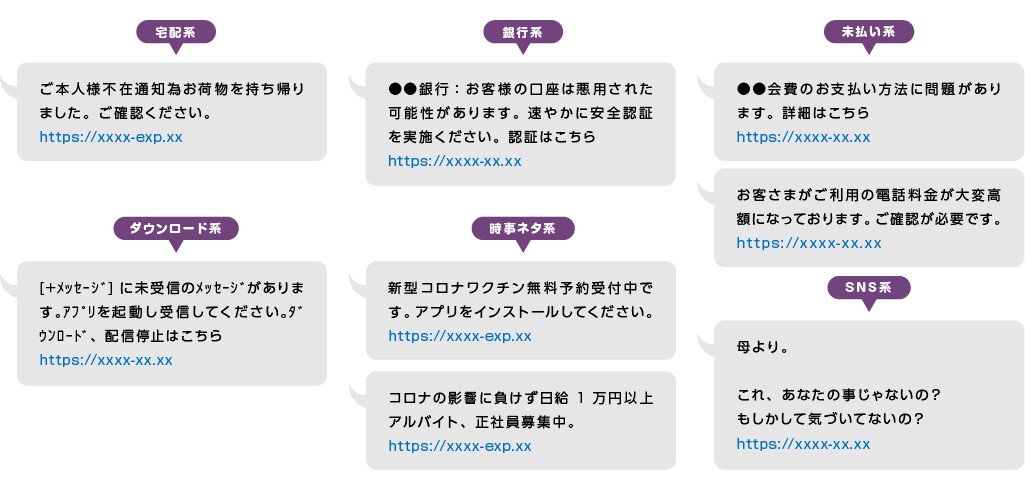
A safety course designed to promote understanding and appropriate use rather than banning
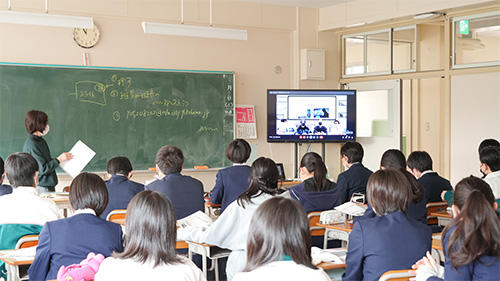
People who are naturally interested in cyber security and fraud, or those who work for a company and are security conscious after receiving a warning from the information systems department, will be aware of the existence of these techniques to some extent and be wary. I think you are. What is difficult is how to make people who use smartphones as a matter of course but who lack access to such information, specifically children, students, and their parents, aware of these risks.
With this awareness in mind, Macnica held a "Smishing Safety Course" for third-year junior high school students at the local Yokohama City Shinohara Junior High School on March 2, 2022. We also carry out learning on information literacy in technology classes, but the aim is to provide students with a more realistic understanding of techniques and the latest situation, and to supplement this.
Founded in 1972 in an area near Shin-Yokohama Station, Shinohara Junior High School has actively collaborated with the local community. We regularly hold meetings on crime prevention and disaster prevention in cooperation with kindergartens, daycare centers, elementary school districts, high schools, and local neighborhood associations, as well as vocational lectures with the cooperation of the local community. The Smishing Safety Course was planned after hearing the high reputation of Macnica from some parents, and coincidentally, both events coincided with the company's 50th anniversary.
From middle school to high school, this is the time when children begin to own their own smartphones and start interacting with friends on SNS. There are various risks lurking there, but if you just prohibit it by saying, ``You can't do this, you can't do that,'' you won't be able to make full use of this useful tool.
Kaoru Suzuki, principal of Shinohara Junior High School, said, ``In schools, we tend to restrict ourselves by saying that we can't do this or that in order to prevent problems from developing, but I don't think that will solve the root problem. I think it is important for information literacy to develop the ability to examine each item individually in their own minds, whether it is true or not."
Introducing smishing tricks and countermeasures in a fun video format
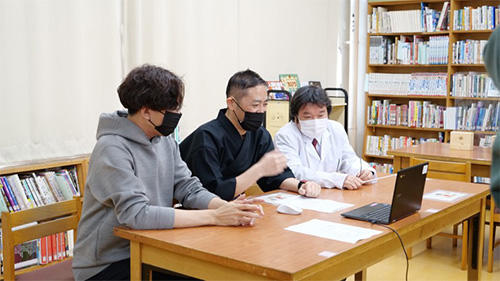
Considering COVID-19, the safety training was conducted online using videos. Macnica engineers and security experts dressed as samurai and professors appeared and, through dialogue, gave easy-to-understand explanations of what phishing and smishing are, the dangers of falling for them, and how to deal with them.
For a long time, the countermeasure against phishing and smishing has been to be careful of suspicious e-mails and suspicious sites. However, as shown in the examples shown in the safety training, we are now in an age where it is easy to copy data and create sites that look exactly like the real thing, so the effort to distinguish between them is unrealistic.
Based on that, the instructors told the students that "if you click on it and it takes you to a screen where you have to enter your personal information, it's almost always 'evil,' and whether it's real or fake, you don't need to click on it, and don't enter information like your ID or password easily." They also urged the students that when they receive such emails or messages, it is important to check in another way before hastily clicking on the link, such as "if it's a notification of absence, check your mailbox," or "if it's a notification of a large bill, access the real website and check the billing information."
Furthermore, he explained that even if you are tricked into entering your information, it is important to stay calm. For example, you can talk to your parents, change your password, contact your credit card company, or contact the Kanagawa Prefectural Police Security Hotline. In an emergency, you can also consult with your mobile phone company's shop or customer support.
Finally, the lecturers concluded by saying, "These types of scams can happen to anyone. Even adults are unaware of these methods, so please teach your parents and other people around you about the contents of this lecture."
The seminar, attended by about 210 third-year students from Shinohara Junior High School, was broadcast on the NHK evening news on the day, prompting many acquaintances to comment, "Shinohara Junior High School was on it, wasn't it?" It is expected that this buzz has prompted many students to talk about smishing and the risks of smartphones at home.
Significance of Safety Training
A survey of students after completing the safety course yielded some very interesting results. Of the 178 students who responded, 60% answered that they had never heard of phishing or smishing when asked. In addition, 28% of the students said, "I have heard the word, but I do not know the specifics." In addition, 4% of students said, 'I received smishing and may have actually opened the link and entered personal information.'
Question Did you know about phishing and smishing?
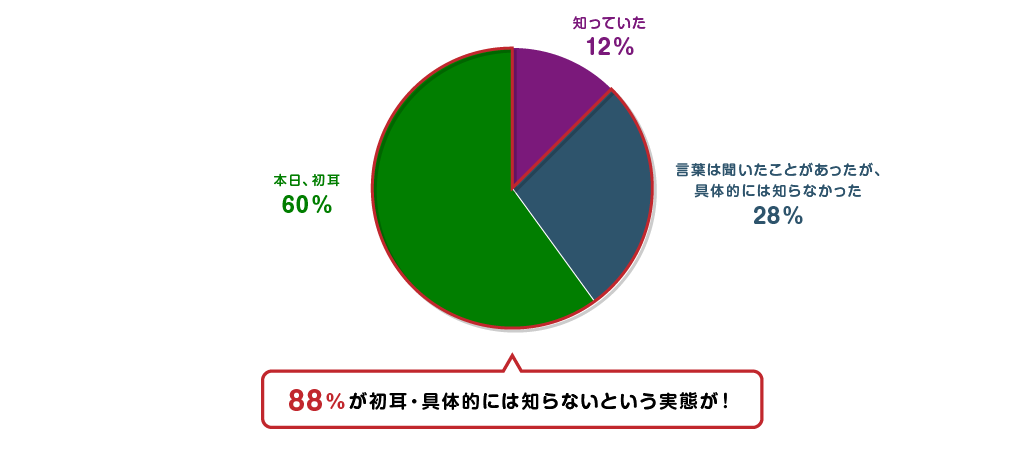
On the other hand, according to NTT Docomo's Mobile Society Research Institute, 79% of junior high school students own their own smartphone. Given the current situation where an increasing number of children are using smartphones without knowing much about fraud and cyber-attacks, it can be said that these lectures had great significance.
Naoko Nakamura, a teacher at Shinohara Junior High School, said, ``Looking at these survey results, I think this lecture had great meaning.I myself knew about phishing, but I hadn't heard much about smishing. "I didn't have any," he recalled.
Once you graduate from junior high school and enter high school, you will have more opportunities to use your smartphone than ever before, such as by starting a part-time job. In the future, there will also be opportunities to make purchases and make payments on their own smartphones. ``Even if you forget the contents of this article for a while, I think it's important to be able to realize at some point, ``Oh, this is probably a scam I've heard about before,'' and to be able to connect it.'' (Teacher Nakamura) )
In fact, Principal Suzuki himself almost fell for a fraudulent message once. Just after I bought a new mobile phone, I received a message saying, ``There is an unpaid amount.'' I was worried that the unpaid amount was due to my fault, so I contacted them. Fortunately, I noticed something suspicious in the middle of the story, and no actual harm was caused, but it can be said to be typical smishing that attacks the human psychology.
Just like the ``I'm Me'' scam, it's a scam that takes advantage of people who think they won't fall for it, and that's why it's important to know what kind of tricks they use beforehand. is important.
By the way, in the survey, we asked people to come up with ideas such as ``If you were to give phishing or smishing a new name, what would you like to name it?'' We received unique answers such as ``Landmine,'' ``Big Attack Button,'' and ``Black Bass.'' It was done. Not only the teachers but also Macnica were captivated by the students' honest feelings.
It will be essential for the younger generation to acquire the ability to scrutinize and discern information
In an era where AI has developed and various types of information are flooding in, he said, "We must acquire the ability to discern what is true and what is not in a large amount of information. I am grateful for this lecture as an opportunity to open the door to that,” said Principal Suzuki.
Principal Suzuki emphasized the importance of scrutinizing information, citing the speech of a student who once won the Kanagawa Prefecture English Speech Contest. The title of the speech is "Doubt". After arranging plausible stories, it seems that the first thing to do after this speech was a speech to the effect that "Doubt", that is, to doubt.
"It was a memorable speech that made me realize the importance of integrating what we have learned so far and other information to derive the next course of action, instead of just accepting what we have heard." ( Principal Suzuki). The same can be said for the way we approach digital technology.
At schools, including Shinohara Junior High School, efforts have begun to give each student a terminal and use it toward the Giga School concept. “We have already launched an organization called the Giga Committee, and we have started an initiative in which children themselves discuss how to use it badly and what they should be careful about. Instead, we want to decide for ourselves how to use it, and make sure that it can be used safely.” (Principal Suzuki)
With the spread of IT and digital technology, a wide and deep world spreads beyond a terminal that fits in the palm of your hand. is also at risk of being stolen. However, smartphones and other digital technologies are also a means of instantly connecting and communicating with various people who cannot meet in person due to the corona crisis. It seems that it is important to continue to have such opportunities to learn how to use it properly, instead of saying, "I don't use it because I'm afraid."
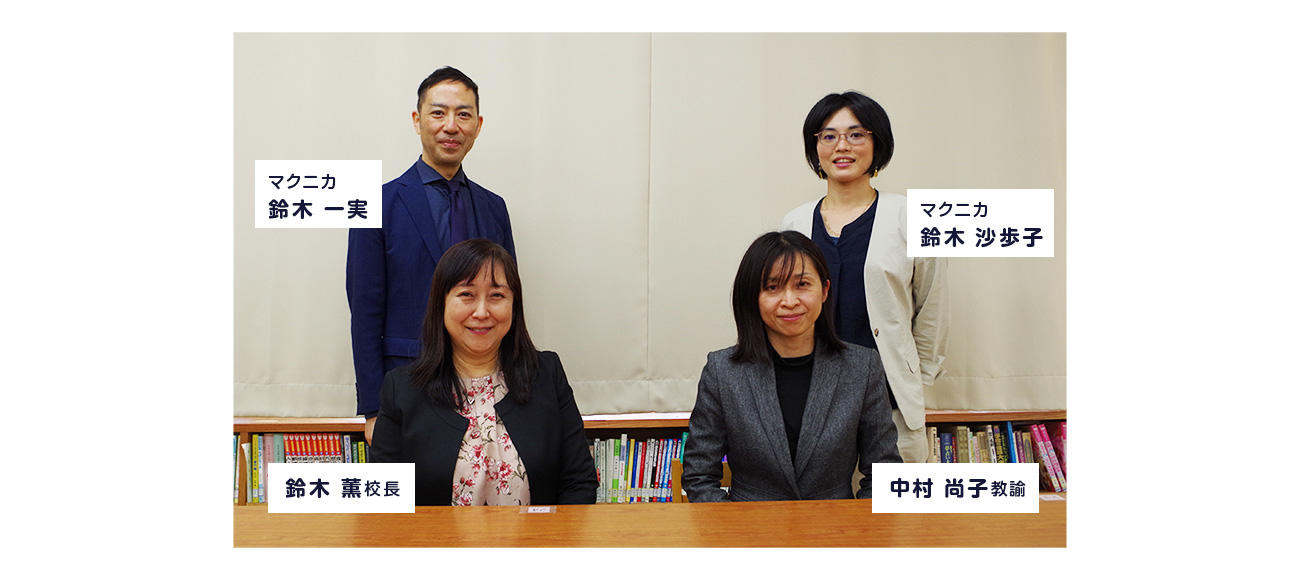
Results of "Smishing Safety Course"
From the results of the survey of junior high school students who actually took the course, we have put together a video of our considerations. Please take a look.

